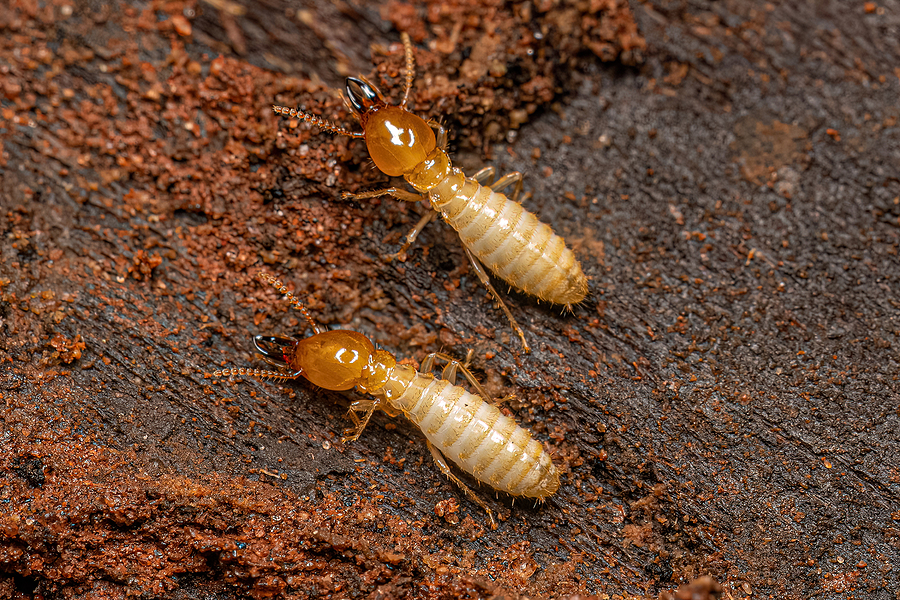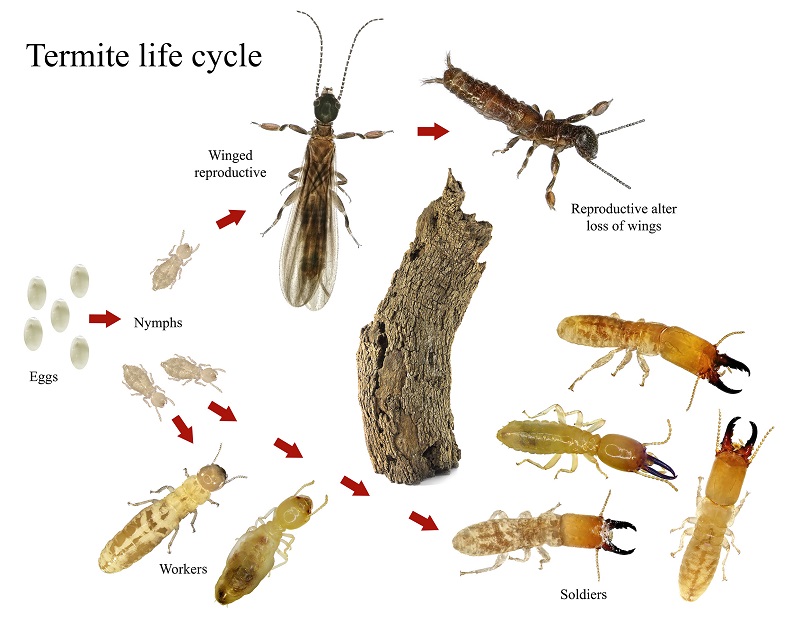Why Select Our Termite Control Services: Expert Solutions for Effective Defense
Ecological Impact of Insect Control: Balancing Efficiency With Sustainability
The environmental impact of pest control is an important issue that requires a delicate balance in between accomplishing performance in managing bugs and ensuring sustainability of our communities. As we make every effort to secure our plants, homes, and health and wellness from the hazards positioned by insects, the methods we employ can inadvertently hurt the atmosphere. From using harmful chemicals that permeate right into our dirt and water to the unplanned repercussions on non-target species, the effects of conventional parasite control methods are far-ranging. There are emerging approaches that offer hope for a much more lasting approach to pest management. These options not just objective to deal with the immediate pest problems however likewise think about the long-term wellness of our world.
Hazardous Chemicals in Insect Control
The utilization of dangerous chemicals in parasite control presents significant ecological and health dangers that warrant mindful factor to consider and mitigation strategies. Chemicals, herbicides, and insecticides are typically used to get rid of parasites, but their widespread application can cause unintended repercussions. These chemicals can contaminate dirt, water sources, and the air, impacting not just the targeted pests but also useful bugs, wildlife, and humans.

To attend to these risks, integrated insect administration (IPM) strategies are being advertised as an extra lasting option. IPM involves a combination of techniques such as biological control, habitat adjustment, and the targeted usage of chemicals as a last hope (ant control bessemer city nc). By taking on an alternative strategy to pest control, we can minimize the environmental and health effects connected with harmful chemicals while efficiently managing pest populations
Effect On Non-Target Species
Thinking about the unintentional effects of parasite control approaches, the influence on non-target varieties is an essential facet that calls for complete evaluation. While pest control steps aim to target certain bugs, other organisms in the community may be accidentally affected. Non-target species, consisting of valuable bugs, birds, mammals, and even plants, can endure straight or indirect injury from pesticide applications or organic control methods.
Insecticides created to deal with a certain bug parasite might harm pollinators like bees or natural predators such as ladybugs. Biological control agents, if not species-specific, can position dangers to unintended targets, interfering with the ecological equilibrium.
To minimize the influence on non-target species, integrated pest monitoring (IPM) approaches that stress an all natural approach to pest control are recommended. These methods focus on the usage of eco-friendly methods, lessening harm to valuable microorganisms while properly handling pest populaces. Carrying out complete threat evaluations and checking the results of insect control initiatives are essential steps in guarding non-target varieties and promoting overall community health.
Dirt and Water Contamination
Unplanned environmental repercussions of parasite control approaches extend beyond affecting non-target species, with substantial ramifications for dirt and water contamination. Pesticides, herbicides, and chemical plant foods utilized in pest control can leach into the soil and pollute groundwater, positioning a threat to both earthbound and aquatic ecological communities. Dirt contamination can disrupt the balance of microbes necessary for nutrient cycling and plant development, resulting in lowered dirt fertility and performance. Additionally, these chemicals can continue the atmosphere for extensive periods, gathering in the soil and potentially getting in the food cycle.
Water contamination is one more essential issue related to insect control techniques. Runoff from agricultural fields treated with pesticides can carry these chemicals into neighboring water bodies, influencing aquatic organisms and water quality. Pollutants in water sources can have significant repercussions, affecting not just marine life yet additionally human wellness via the consumption of infected water or marine microorganisms. To alleviate dirt and water contamination from bug control activities, integrated parasite monitoring strategies that prioritize sustainability and minimize chemical inputs are essential.
Air Contamination From Pesticide Usage
Direct exposure to airborne chemicals throughout agricultural applications positions a considerable problem for air contamination control steps. They can volatilize right into the air and type unpredictable natural compounds (VOCs) and various other airborne toxins when pesticides are splashed onto plants - ant control services. These chemicals can contribute to the formation of ground-level ozone, a significant element of smog that can have damaging effects on human wellness, crop efficiency, and general air top quality. Additionally, chemical drift, where pesticides are brought by the wind to unintentional locations, can cause the contamination of close-by ecosystems and water bodies.

Strategies for Sustainable Parasite Control
In the realm of agricultural practices, applying sustainable insect control methods is paramount for maintaining ecological balance and safeguarding crop yields. Sustainable insect control highlights the usage of eco pleasant techniques to take care of parasite populaces properly while decreasing injury to non-target organisms and communities. Integrated Bug Administration (IPM) is a widely adopted method that integrates biological, cultural, physical, and chemical control methods to achieve lasting pest management services.
Plant rotation and diversity are also reliable methods to interrupt pest life cycles and create much less beneficial problems for insects to grow. Eventually, by incorporating these sustainable bug control methods, farmers can achieve an equilibrium between pest administration performance and environmental stewardship.
Final Thought
In conclusion, the environmental influence of pest control techniques need to be thoroughly taken into consideration to balance efficiency with sustainability. Harmful chemicals utilized in bug control can lead to dirt and water contamination, air pollution, and damage non-target varieties - ant control. It is click here to find out more important to apply sustainable insect control strategies to decrease these unfavorable impacts on the atmosphere and promote a much healthier ecosystem for future generations
By embracing an all natural technique to pest control, we can decrease the ecological and wellness impacts associated with dangerous chemicals while properly handling pest populations.

To minimize the air pollution created by chemical use, it is crucial to adopt incorporated pest monitoring methods that focus on the use of non-chemical bug control methods, such as crop turning, all-natural predators, and resistant plant varieties. Sustainable bug control emphasizes the use of eco pleasant approaches to manage bug populaces effectively while lessening injury to non-target organisms and environments. Integrated Parasite Monitoring (IPM) is a commonly embraced strategy that combines biological, cultural, physical, and chemical control techniques to accomplish lasting pest administration remedies.